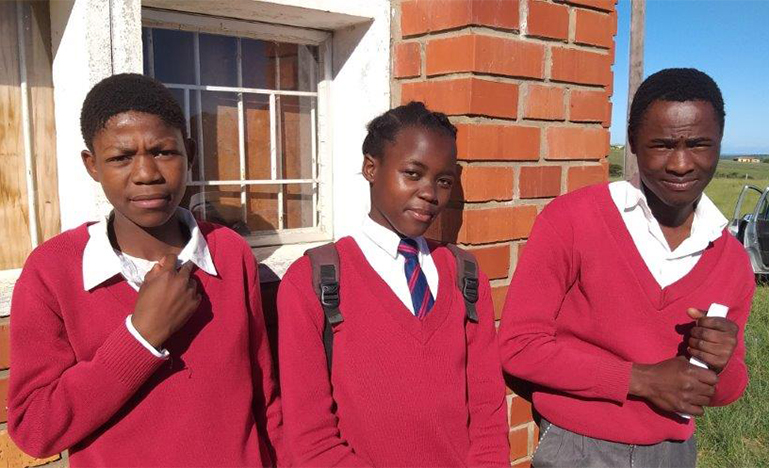Social change takes more than litigation
In international development, as well as here at home, public interest litigation will only truly be effective when paired with other social change strategies.

One way to advocate for social change on behalf of marginalized voices is through strategic litigation. But in matters of global development, litigation alone is not enough to secure fundamental rights. To achieve the best measures of success, it must be combined with other activism strategies.
Recent litigation around scholar transport in the rural areas of the Eastern Cape of South Africa is a case in point. A crisis has been growing there for years as the provincial government has persistently failed in fulfilling its constitutional obligations concerning childhood education by not providing children with transport to their schools. This is in spite of repeated promises to do so, especially in the wake of successful litigation by the Legal Resources Centre (LRC).
Over 20,000 students are affected by scholar transport issues in the Eastern Cape. Most of them live more than 5km from their school and have no option but to walk or pay exorbitant rates for private transport. Some of the children are as young as six years old. The routes are often unsafe, forcing students to walk through dangerous roads and rivers. Many children drop out of school, or are frequently absent. In one tragic event, six students drowned while crossing a river.
In response to a previous court order that resulted from litigation involving the LRC, the province set up a process to apply for transport, but it is confusing and dysfunctional. Long delays in handling applications have derailed it. Often it is impossible to determine if a decision has been made or communicated at all.
The Scholar Transport case is hardly unique in South Africa. The Legal Resources Centre has a history of winning cases through litigation, only to discover that relief is slowed or stalled at the implementation stage. While the government’s response has been inadequate in responding to the court orders, the people affected continue to suffer. In the case of Amasango school in Grahamstown, the government has ignored a court order to provide land to a school for children with special needs for nearly ten years.
Problems do not magically get solved because black letter law says it must be so. The South African Constitution is arguably among the most advanced, progressive, and complete in the world. The right to children’s safety, education, and a safe environment is written directly into the Bill of Rights, and the courts have affirmed it time and time again. No one disputes that students have the constitutional and moral right to school transport. The problem is a lack of resources and political will to fix the problem.
We see this in Canada, too, even though we may be tempted to rationalize these problems as existing only in developing nations, where the state struggle with finding the funding to fulfill legal obligations to its people. Even here, where access to funding is readily available to fix chronic problems in underserved communities, a lack of political remains a barrier to change. Consider, for example, the embarrassing treatment of indigenous groups by the federal government. Ottawa is still appealing a ruling by the Canadian Human Rights Tribunal that the government chronically underfunded Indigenous child and family services. At least 56 drinking water advisories remain in place on First Nations reserves.
What’s more, there is a lot to learn from other LRC cases in terms of what an effective litigation campaign can look like. For example, in 2011, the education department estimated that half of the Eastern Cape’s one million students did not have access to a desk or chair. Over several years and four rounds of litigation, the LRC fought to secure hundreds of thousands of desks for these students. To ensure the government would comply with the order, the LRC also engaged in lengthy discussions (with ongoing threats of further litigation) to set up systemic change and improve the management of school furniture. Today, conditions for these students have greatly improved as a result.
It takes persistence, patience, and the implementation of systemic change to secure a future for progressive policies. In a 2014 study, Steven Budlender, Gilbert Marcus and Nick Ferreira, all advocates of the Johannesburg Bar, identified four strategies that should be used together to vindicate legal rights in a way that achieves social change. The first is to set up public information campaigns to inform people of their rights. Second, intermediary organizations must be in place to offer advice and assistance to the public. Third, it takes social mobilization and advocacy to assert rights and apply political pressure. And finally, litigation also plays a pivotal role. But rarely can a single organization be integrally involved in each of these four strategies. The other challenge is to ensure that the communities themselves direct the efforts.
All of this is a reminder that public interest litigation is an essential component of working in global development to assert new and existing human rights. Indeed, persistent litigation with the ultimate goal of systemic change is necessary. But it takes complementary strategies to ensure that litigation has a lasting impact, and to secure the resources and political will for future actions.


